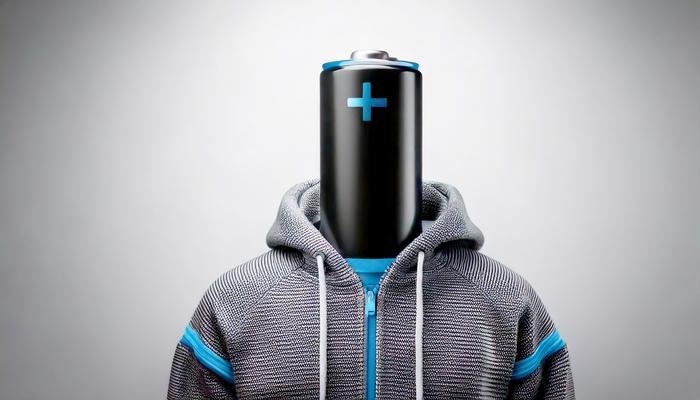Reviewed by Lexie CornerMar 7 2025
Researchers from King Abdullah University of Science & Technology have incorporated nylon into the design of lithium-metal batteries. This innovation has the potential to increase their power and lower their cost.
 Commercial polymers used in clothes are helping advance battery technology. Image Credit: Xavier Pita
Commercial polymers used in clothes are helping advance battery technology. Image Credit: Xavier Pita
There are two types of lithium batteries.
Lithium-ion batteries are more widely available and are commonly used in laptops, smartphones, and other household electronics. In contrast, lithium-metal batteries offer a higher energy density and have broader applications in fields such as transportation, robotics, and more.
However, the longevity and safety of lithium-metal batteries have hindered their widespread adoption. Currently, corrosive and dangerous materials are used in their production, leading to excessive parasitic and side reactions that reduce both performance and safety.
Additives stabilize battery interfaces and improve performance. According to research by KAUST scientists, nylon, a polymer commonly found in clothing, can be dissolved in a mild lithium solution and used as an additive in lithium-metal batteries. This addition results in fewer parasitic reactions, improved efficiency, and longer battery lifespans.
The study shows that nylon, which was once thought to require harsh solvents, can be dissolved in much milder solvents than previously believed. This discovery enhances battery performance by examining the chemistry of nylon and its interactions with lithium, particularly the important molecular bonds involved.
Polymers have always been difficult to dissolve in common battery electrolytes. We did an intensive study of the chemical properties and modified the solvation structure and interactions.
Zhiming Zhao, Postdoctoral Scientist and Study Author, King Abdullah University of Science
“My research team is dedicated to building renewable energy and storage solutions such as higher energy density and safer batteries to accelerate decarbonization adoption in the Kingdom. This was a discovery that promises cheaper and safer additives and demonstrates the benefits of basic scientific research,” said Husam Alshareef, Professor and Chair of the KAUST Center of Excellence for Renewable Energy and Storage Technologies, who headed the two studies.
CREST was launched by KAUST in September 2023 as part of its updated strategic plan. Saudi Arabia has committed to achieving a net-zero carbon economy by 2060, so the Kingdom is making significant investments in sustainable energy technologies.
Journal References:
Zhao, Z., et al. (2025) New Dissolution Chemistry of Nylon Promises Reversible Li-Metal Batteries. ACS Energy Letters. doi.org/10.1021/acsenergylett.4c03221.
Zhao, Z., et al. (2025) Nylon electrolyte chemistry in high-energy Li-metal batteries. Energy & Environmental Science. doi.org/10.1039/d4ee05739b.